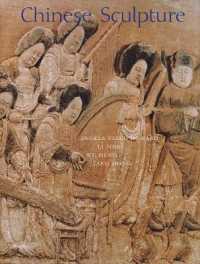Full Description
Global Ancestors is a collection of papers which reflect on modern museological responses to the often complex and emotive relationship that people have with the ancestors and objects which they created. Set out in three broad themes, the first collection of papers explore how indigenous peoples are represented in museums in Panama and China and how more can be gained by working with indigenous communities to further our understanding of the ancestors. The second section examines changes in British and American museological thinking regarding the repatriation of human remains and objects to indigenous peoples, focusing in particular on the impact of legislation on western institutions and the expectations of indigenous communities and alternative religious groups. These issues are explored through case studies involving material from the British Museum and Glasgow Museum. The final section explores the ways in which archaeologists and indigenous communities interact. These chapters illustrate, through case studies from South Africa, Finland and Canada, how both groups have worked together for their mutual benefit or to change the majority viewpoint.
Global Ancestors represents the beginnings of a more inclusive and shared understanding between different constituencies and points the way forward to a time when we can consider the ancestors truly 'global'.
Contents
Preface
Introduction (Rebecca Redfern and Margaret Clegg)
Representations of Indigenous Peoples
1. Changes in the representation of contemporary indigenous groups in Panamanian museums (Ana Luisa Sánchez Laws)
2. Ethnic museums and indigenous culture in regional China (Heng Wu and Katherine Goodnow)
Repatriation changes and viewpoints
3. The Protection and Repatriation of Native American Cultural Items in the United States (Myra Giesen)
4. A change in perspective: the impact of legislative changes in the UK (Margaret Clegg)
5. Glasgow's Ghost Dance Shirt - Reflections on a Circle to Complete (Patricia Allen)
6. Contesting 'claims' on human remains: which traditions are treated as legitimate and why? (Piotr Bienkowski and Elizabeth Burns Coleman)
Museums, Archaeology and Indigenous Communities
7. Yep Hisat Hoopoq'yaqam Yeesiwa (Hopi Ancestors Were Once Here): repatriation research documenting Hopi cultural affiliation with the ancient Hohokam of southern Arizona (T. J. Ferguson, Leigh J. Kuwanwisiwma, Micah Loma'omvaya, Patrick Lyons, Greg Schachner and Laurie Webster)
8. 'The living dead': Shona worldview around death and burial and implications for archaeology (Innocent Pikirayi)
9. Sámi human Remains in Finland: the case of the Sámi Museum Siida (Tarmo Jomppanen)
10. Interwoven histories and new legacies: working with the Tlicho Nation (Chantal Knowles)
11. Concluding remarks (Margaret Clegg, Rebecca Redfern, Jelena Bekvalac and Heather Bonney)








